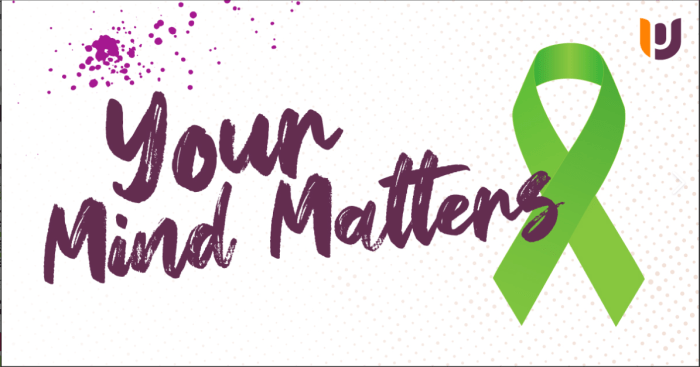With Mental Health Awareness at the forefront, this paragraph opens a window to an amazing start and intrigue, inviting readers to embark on a storytelling American high school hip style filled with unexpected twists and insights.
Mental health awareness is crucial in today’s society, shedding light on important issues and promoting well-being for all. Let’s dive into the world of mental health awareness and discover the impact it has on individuals and communities.
What is Mental Health Awareness?

Mental Health Awareness is the understanding and acknowledgment of mental health conditions, issues, and struggles that individuals may face. It involves recognizing the importance of mental well-being and the impact it has on one’s overall health and quality of life.
Raising awareness about mental health is crucial in breaking the stigma surrounding mental illness, encouraging individuals to seek help, and promoting a supportive and understanding community. By increasing awareness, we can create a more inclusive and empathetic society that prioritizes mental health care and support.
Importance of Mental Health Awareness
- Reducing stigma and discrimination associated with mental illness
- Encouraging open conversations about mental health
- Promoting early intervention and treatment
- Empowering individuals to seek help and support
Initiatives and Campaigns for Mental Health Awareness
- The “Bell Let’s Talk” campaign in Canada, which aims to end the stigma around mental illness and raise funds for mental health initiatives
- The “You Are Not Alone” campaign by the National Alliance on Mental Illness (NAMI), providing support and resources for individuals struggling with mental health challenges
- The “Thrive NYC” initiative, launched by the City of New York, focusing on mental health education, awareness, and access to care for all residents
Understanding Mental Health Stigma
In today’s society, mental health stigma remains a significant barrier for individuals seeking help and support. Stigma can be defined as the negative attitudes, beliefs, and stereotypes that surround mental health conditions, leading to discrimination and social exclusion.
Impact of Mental Health Stigma
Stigma surrounding mental health can have a profound impact on individuals, causing feelings of shame, fear, and isolation. This can prevent people from seeking treatment and support, leading to worsened mental health outcomes. It can also impact relationships, employment opportunities, and overall quality of life.
Common Misconceptions and Stereotypes
– One common misconception is that mental health conditions are a sign of weakness or a lack of willpower. In reality, mental health issues are complex and can affect anyone, regardless of strength or character.
– Another stereotype is that individuals with mental health conditions are violent or dangerous. This harmful belief is not supported by evidence and only serves to further stigmatize those in need of help.
– Additionally, there is a misconception that people can simply “snap out of” mental health issues if they just try harder. This oversimplification ignores the real struggles individuals face and minimizes the importance of professional help and support.
Personal Experiences
Many individuals have faced mental health stigma firsthand and have worked to overcome it. By sharing personal stories and experiences, we can break down barriers and challenge stereotypes. Overcoming stigma often involves educating others, seeking support, and advocating for mental health awareness and acceptance.
Strategies for Promoting Mental Health Awareness
Promoting mental health awareness in communities is crucial for reducing stigma and increasing support for those struggling with mental health issues. Education plays a significant role in spreading awareness and destigmatizing mental health. Let’s explore some effective strategies for promoting mental health awareness:
1. Start Conversations
Initiate open and honest conversations about mental health in your community. Encourage people to share their experiences and feelings without fear of judgment. This can help normalize discussions around mental health and break down barriers.
2. Share Resources, Mental Health Awareness
Provide information about mental health resources and support services available in your area. This can include hotlines, counseling centers, support groups, and online resources. By sharing these resources, you can help individuals access the help they need.
3. Organize Events
Host events or workshops focused on mental health awareness. This can include guest speakers, panel discussions, and interactive activities to educate the community about mental health issues. Creating safe spaces for these conversations can make a significant impact.
4. Utilize Social Media
Harness the power of social media to raise awareness about mental health. Share educational posts, personal stories, and resources to reach a broader audience. Use hashtags and online campaigns to engage people in discussions about mental health.
5. Advocate for Policy Change
Get involved in advocacy efforts to promote mental health policies and funding. Support initiatives that prioritize mental health awareness and access to quality mental health care. By advocating for change, you can help create a more supportive environment for those facing mental health challenges.
Mental Health Awareness in Different Cultures

In various cultures around the world, mental health awareness and attitudes towards seeking help can differ significantly. Cultural beliefs and norms play a crucial role in shaping how mental health is perceived and addressed within a community.
Cultural Attitudes Towards Mental Health
- Some cultures may view mental health issues as a sign of weakness or personal failure, leading to stigma and reluctance to seek help.
- Other cultures may prioritize community support and holistic approaches to mental well-being, integrating traditional healing practices.
- Certain cultures may have specific rituals or ceremonies dedicated to mental health and emotional healing.
Influence of Cultural Beliefs on Mental Health Awareness
- Cultural beliefs about the causes of mental health conditions can impact how individuals perceive their own symptoms and whether they seek professional help.
- Stigma surrounding mental health in some cultures may prevent open discussions and lead to individuals suffering in silence.
- Understanding and respecting diverse cultural perspectives is essential for promoting mental health awareness and reducing stigma globally.